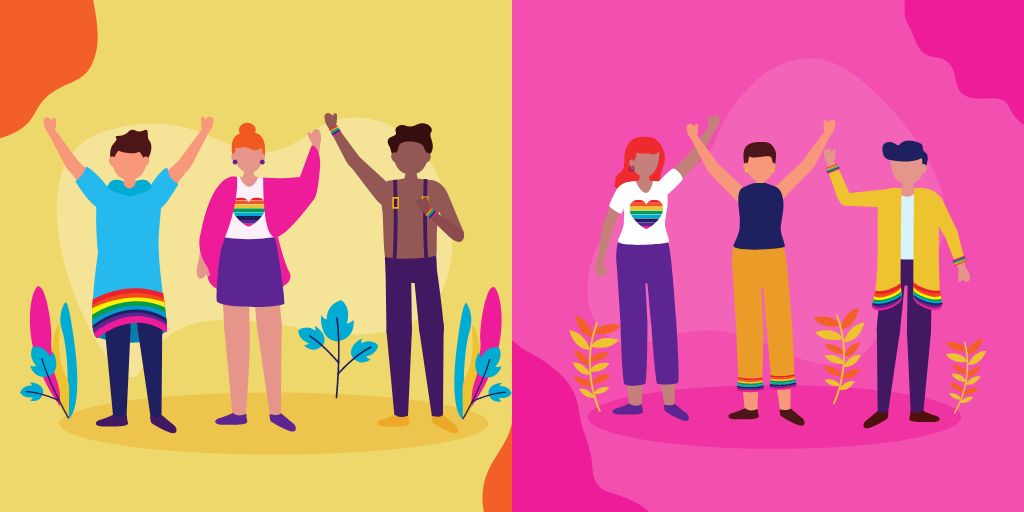Being an ally for the LGBTQ+ community is simple. In a world where many people aren’t accepting or willing to learn about identities other than heterosexual and cisgender, allies are incredibly refreshing to come across. For many people in the queer community, coming out to anyone can be intimidating, whether it be friends or family. However, there are many ways to make yourself more supportive and understanding towards individual differences, especially when it comes to the LGBTQ+ community. Fourth-year University of Ottawa student Elisa Popova discusses ways in which she feels an individual can be a positive ally. Elisa identifies as an asexual lesbian.
She explains that when she came out as a lesbian people were quite surprised. Regarding her asexuality, she has only come out as asexual to her partner, who was curious about what the term meant. Some of the questions she received from her partner included, ‘Do you find people attractive? How do crushes work for you?” Elisa explains, “They’re valid [questions].”
Elisa wishes more people would acknowledge asexuality, explaining, “Instead of assuming everyone is super into sex, be understanding that some people aren’t. Don’t assume for everyone.”
For many people, asexuality isn’t a term they are familiar with. This is the case for many names in the LGBTQ+ acronym, especially for the older generation who might not know anyone personally who identifies as queer. However, it is important to be aware that queer people do exist, whether it be asexuals, bisexuals, or a label in-between. Don’t assume anyone’s sexuality, and be sure to speak up if you hear homophobic jokes or comments being tossed around.
Elisa explains the concept of a “false ally”, explaining that someone who is not truly an ally would disregard your views and not care about what you are saying, since they would be thinking more about themselves. She explains that a “real ally” would ask you questions to make you more comfortable, and be willing to accommodate for differences.
As for the point of having allies in the LGBTQ+ community, Elisa explains:
“You would have more of a support network behind you, [and] you wouldn’t just be alone … swimming in the middle of the water. You would have people who you could talk to, who would be understanding.” — Elisa
When Elisa was in her first year of university, she decided to take it on herself to form her own LGBTQ+ support network in the form of an Instagram groupchat. “In first year, I made a groupchat for [LGBTQ+] people. It was basically a big support network. Everyone was very accepting, [and] it wasn’t just gay people, it was like different sexualities under the umbrella.”
She continues, “You got to know people who were like you, [who were] like minded. And then also I met my girlfriend, and actually I think a lot of other people met their own partners there.”
Elisa explains that she is very thankful to know other queer people, indicating that she isn’t sure how things would be if she only had straight friends. She explains that she worries her straight friends would be uncomfortable with her discussing female crushes, and wouldn’t want to continue the conversation since they wouldn’t find it relatable. Elisa explains, “It’d be weird if they were like, what, I just want to talk about boys.”
Elisa’s advice to straight people with queer friends is as follows:
“Be open minded, normalize everything, [and] don’t expect everyone to live in a straight bubble.” — Elisa
